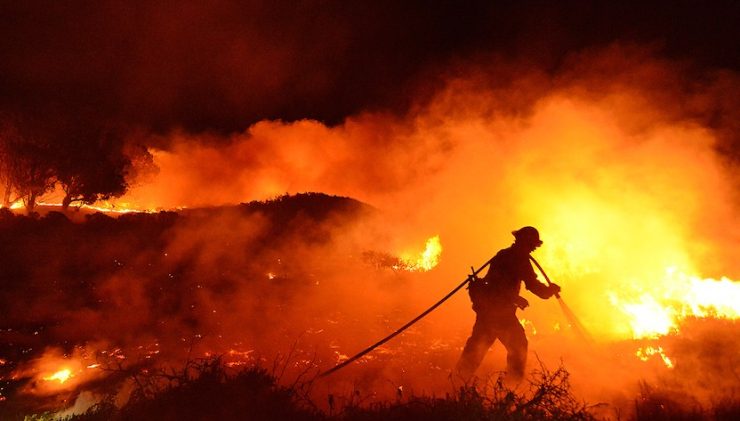 Life Insurance: Why Millennials and Gen Z Are Securing Protection Now
Life Insurance: Why Millennials and Gen Z Are Securing Protection NowIt’s the time of year for wildfires, and let’s just say the season is living up to its reputation. According to National Geographic, the United States sees more than 100,000 wildfires per year, consuming 4-5 million acres on the whole. Within the first five months of this year, the Insurance Information Institute said there were somewhat fewer fires than the year before (20,563 versus 22,112), but in terms of acreage, the situation is more severe than usual. From January through May, 1.6 million acres have burned in 2016, as compared to 410,990 acres during the same period last year.
That’s for the United States as a whole. In California, Fortune said two recent fires – Valley and Butte – have displaced more than 20,000 people and consumed 138,660 acres between them. The Valley fire alone is set to be the most destructive California wildfire since 1991.
The costs follow the severity, as one might imagine. According to the nonpartisan research organization Headwaters Economics, in the 1990s, the federal protection and suppression of wildfires cost less than $1 billion a year. Between 2002 and 2013, it rose to more than $3 billion annually. This year in California, the season was running around $212 million before Valley and Butte exploded. Those will make the previous estimate “look like a drop in the bucket in comparison,” Fortune said.
If you’re concerned about the safety of your home, pets, and family during wildfire season, here are some tips you can follow to help protect them.
Avoid the two most common causes of wildfire.
- Equipment mishaps. “Lawnmowers, weed-eaters, chain saws, grinders, welders, tractors, and trimmers can all spark a wildland fire,” according to Cal Fire. To prevent sparks, don’t run heavy machinery after 10 am, and don’t run it at all during dry spells.
- Burning unsafely. If you’re building a campfire, do so safely: check for fire restrictions, choose an open location, clear it in advance, and put it out completely when you’re done using the “drown, stir and feel” method. If you’re burning debris, keep the pile under four feet long and high, clear a space 10 feet around it, keep a water supply nearby and obtain a permit first.
Protect your property and your family with common-sense strategies.
- If it’s dead, remove it. Dead branches on your trees. Dry leaves on your roof or in your gutters. Overgrown grass that’s since turned brown. These can and should be removed.
- If a branch is near the ground, prune it. Wildfires can jump to treetops. The National Fire Protection Agency advises you to keep your trees lowest branches 6-10 feet from the ground.
- If it’s burning, drown it. Be diligent about disposing of ashes, matches, and cinders of any kind, thoroughly soaking them before you leave them alone.
- If it’s fuel, keep it away. If you have a woodpile, it should be stacked at least 30 feet away from your home. The same goes for anything that could burn: keep a 30-foot burn-free area around your buildings.
- If you see a fire, call 911. Don’t assume someone else has already called it in.
- If you live where fires are common, stay informed. “Many communities have text or email alerting systems for emergency notifications,” according to the Department of Homeland Security.
- If you’re ordered to evacuate, do it. Don’t make excuses. Don’t delay.
Don’t stop there. Make sure your insurance limits are adequate and up-to- date with current building values. If you operate a business, ask your Heffernan Insurance Brokers agent about business interruption insurance. We recommend reviewing your policies with your agent at least once a year.



